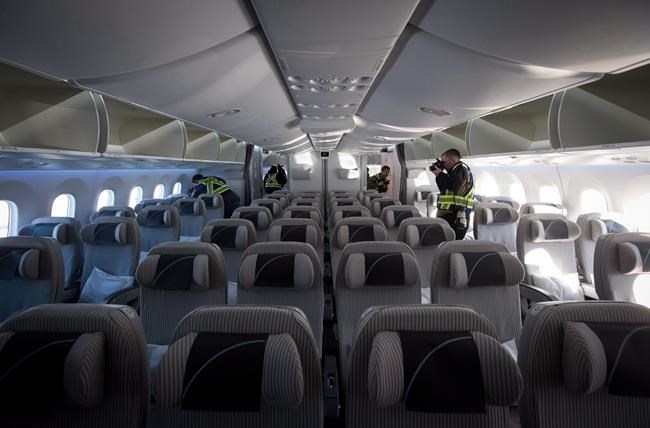IQALUIT, Nunavut — A plane travelling from Paris to Seattle was forced to make an emergency landing in Iqaluit after there was a heat smell in the cabin during the flight.
Air France said in an emailed statement that the Boeing 787 was diverted to Nunavut’s capital and landed just before noon local time Tuesday. The plane had 260 passenger, three pilots and nine cabin crew on board.
The airline said technical checks were being done on the plane. It did not provide information on what caused the smell.
It said another Air France plane was set to travel from Montreal to pick up the passengers in Iqaluit and take them to New York, where they would then be rerouted to Seattle.
"Air France regrets the inconvenience caused by this situation and reiterates that the safety of its customers and crews is its absolute imperative," the airline said.
A Nunavut government spokesperson said no damage or injuries were reported. Weichien Chan said in an email that the Iqaluit Airport Authority was working with the airline to provide help.
The Iqaluit International Airport is located next to the city and has one asphalt runway.
It's included in flight plans as a diversion airport for many airlines and private operators that travel on polar routes between North America, Asia and Europe, Chan said.
The airport sees plane diversions for technical or medical issues once every two to three months, Chan added.
This report by The Canadian Press was first published May 7, 2024.
The Canadian Press



